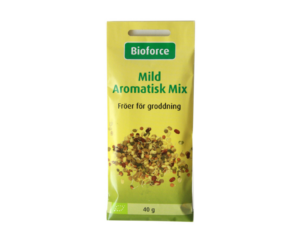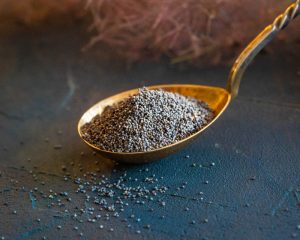

Organic blanched almonds
From 2.90€
Organic almonds(Prunus dulcis) are mainly grown in the Mediterranean region, the USA, Australia and China, but originate from the so-called Middle East region (Iran, Saudi Arabia, etc.) where they still grow naturally. Almonds are known as the king of nuts because they are considered to be the most beneficial nuts for the human body, due to their high accumulation of essential nutrients. Almonds can be eaten fresh or used in cooking, they are great for baking and salads. It is not only healthy, but also delicious.
Health benefits of almonds
Almonds are rich in vitamins, minerals, fibre and vegetable protein. Eating 30 grams of almonds gives us 1/8 of the protein we need. There are several reasons why you should start eating almonds every day:
-Reduces the risk of heart attack and other heart diseases,
-Reduces bad cholesterol,
-Protects artery walls from damage,
-Helps maintain strong teeth and bones,
-Reduces blood sugar,
-Supports good brain function,
-Baro nervous system,
-Helps the digestive system,
-Protects against constipation,
-Alkalizes the body,
-Help you lose weight (and, if necessary, gain weight),
-Supports healthy skin,
-Helps with hair problems.
Almonds lower cholesterol
By eating almonds every day, you can regulate your blood cholesterol levels. This is because the polyunsaturated and monounsaturated fats in almonds, also known as good fats, raise good cholesterol (HDL) and lower bad cholesterol (LDL).
Reduces the risk of heart disease
The main reason, as mentioned above, is that almonds reduce bad cholesterol. The magnesium in almonds improves blood circulation and the delivery of oxygen and nutrients throughout the body. Almonds are also rich in vitamin E, which protects the arteries against inflammation and calcification of the artery walls. Eating almonds is associated with better blood lipid levels and better heart health, which can help regulate blood pressure and help prevent heart attacks.
Almonds improve brain function
Almonds are considered one of the best brain foods because they are low in saturated fat, high in omega-6, vitamin E, calcium, zinc and protein. Vitamin E supports cognitive function, protects memory and promotes alertness. Zinc and vitamin E help protect the brain from the harmful effects of free radicals. Vitamin B6 in almonds helps repair damaged brain cells. The amino acid phenylalanine in almonds is thought to improve problem-solving function and may help prevent Parkinson’s disease.
Almonds regulate blood sugar
Almonds regulate blood sugar levels and help prevent diabetes. Thanks to nutrients such as good fats, fibre, vitamins and minerals, almonds help regulate nutrient absorption and blood glucose levels. Studies show that almonds can help people with 2. type diabetes, and help control diabetes in men and postmenopausal women. They also prevent big sugar spikes, which can prevent diabetes.
Almonds and their benefits for the skin
Almonds contain a nutrient that is very important for skin health, vitamin E. This vitamin nourishes the skin and prevents it from drying out. Almond oil can be used for skin care by simply rubbing it on the face, it does not clog the skin pores and does not leave an unpleasant greasy feeling. Almond oil has warming properties.
Benefits of almonds for hair
The nutrients in almonds, from essential fatty acids (omega-6), vitamin E, biotin (vitamin B7) to the mineral manganese, promote healthy hair growth. The zinc in almonds promotes cell renewal and prevents hair loss.
Use almond oil in your hair, you can massage it into your scalp, rub it into your hair, leave it in for 30 minutes and then wash it out with water or just leave it in overnight as a hair mask, this will allow your hair to absorb the nutrients as much as possible. Almond oil can help nourish hair or treat existing hair problems, from dandruff to hair loss. Simply use this oil on your hair 3 times a week.
Consumption
How many nuts you can eat depends on your digestive capacity. Your appetite and digestive capacity are more important than the recommended amount. However, nuts are high in calories, fatty and difficult to digest.
Sources
https://www.ayurvedajournal.world
https://www.ncbi.nlm.nih.gov
NOTE. The information provided here should not be interpreted as advice for treatment or other health problems. We encourage you to make decisions about your personal health by considering different sources of information.
Organic blanched almonds 100%
Energy value 630 kcal / 2600 kJ
Fat 55,3 g
- of which saturates 4,6 g
Carbohydrate, excluding fibre 4,6 g
- of which sugars 3,7 g
Fibre 12,7 g
Protein 22,0 g
Salt 0,02 g
Store in a cool, dry place. Recommended storage temperature: 16°C.










